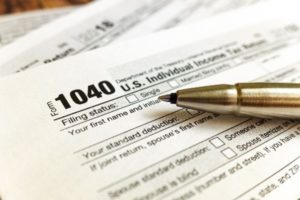
The IRS has granted an automatic estimated tax penalty waiver to more than 400,000 eligible taxpayers. This penalty relief is being provided as a response to the widespread tax underpayment caused by changes made under the Tax Cuts and Jobs Act (TCJA).
Who Qualifies for Penalty Relief?
The typical IRS safe harbor provides that taxpayers who pay at least 90% of their annual tax liability in estimated tax payments won’t be charged underpayment penalties. However, the IRS expanded this safe harbor because many taxpayers were underpaying while adjusting to the new rules of the TCJA.
The safe harbor was lowered to 85% in January, and then further lowered to 80% in March. Initially, eligible taxpayers had to request this penalty waiver, but now all eligible taxpayers will automatically have the penalties removed from their accounts.
Refunds for Paid Penalties
If you already paid the underpayment penalties, the IRS will be sending a CP21 notice to you in the mail. You should receive a refund check for your penalty amount around three weeks after you receive the CP21 notice.
You don’t need to contact the IRS to receive penalty relief. If you haven’t yet filed your 2018 tax return, you can claim this waiver while filing your return. If you use a tax filing software, the waiver should be automatically included in the program.
Avoiding Underpayment Penalties
Every taxpayer should also do a “Paycheck Checkup” to make sure they aren’t overpaying or underpaying their taxes. Underpaying can result in tax penalties and a large tax bill when you file your return. The IRS was slow to update their withholding calculators after passage of the TCJA, but they should be more accurate now to reflect the new laws.
Overpaying can also have consequences because you are giving the IRS a tax-free loan throughout the year. You may prefer to have this money at your disposal during the year, but some taxpayers like to use their tax refunds as a method of “forced savings”.
If you have IRS tax debt due to low withholdings or estimated tax payments, don’t let your tax problems linger. Act quickly to resolve the issue and reduce the amount you’ll pay in penalties and interest.
The Gartzman Law Firm can help you with tax penalties and other IRS tax problems. Use our contact form to request a consultation with an Atlanta tax resolution attorney.

